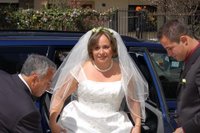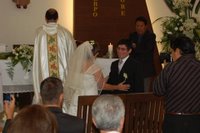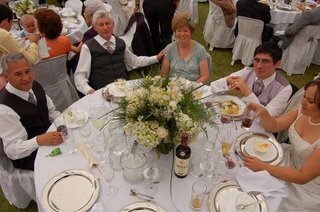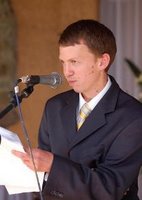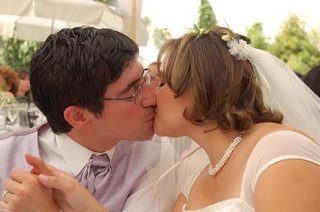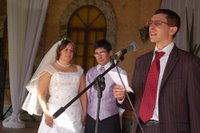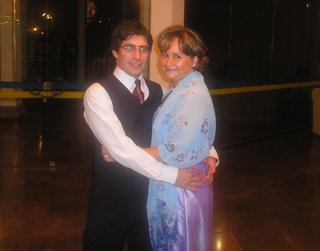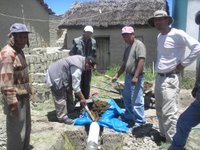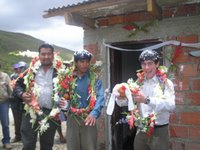I cannot take any more, please not another "tramite" or document... such is the never ending Bolivian bureaucracy (and with which I believe the British Embassy is in connivance.)
So just how complicated can it be to get married in Bolivia and for my betrothed to get a visa to come to live in the UK? Well, not only do I need my birth certificate, passport, a declaration that I am single (issued by my Embassy after 21 days of notice), title deeds of my property, proof of savings but we also have to get documents translated into Spanish (by an offical language translation service, I cannot do it), certified by the British Embassy and then further certified by the equivalent of the Home Office in Bolivia.
I nearly lost my rag yesterday in La Paz, not only were the documents not ready in the British Embassy (a two and a half hour wait), then we headed off to the Cancilleria, the Bolivian Government Department that deals with certifying documents. There were a mere 100 people in front of us in the queue, hence another wait, this time of 4 hours. When it finally came to our turn, the official refused to certify the British Embassy certified copies of my birth certificate and would only certify the translation. There is no logic and they will certify the photocopy of my passport, but it is not worth arguing with these officials. I thought the day's tramites were over, but no, we had to pay. $43 of stamps that they attach to the document we purchased in another office in the aforementioned building, but inexplicably the fee for processing their services had to be paid into a bank (it was 3.42pm, the banks shut at 4pm), before they return the documentation to you. Of course while there are dozens of banks in this district, the one where we had to pay the fee was nowhere near the Cancilleria, it is the other side of town. When we got there, there was no bank machine and we were out of money so while I was queuing Marioly went in search of money. We then had to rush back to the Cancilleria, which itself was officially closed (though they let you in a side entrance) and queue a bit more to hand over the bank receipt in return for our documentation.
I really hate to say it but I think the bureaucracy contributes to the country being underdeveloped. Firstly, if the Bolivian administration can make the most simple thing so complicated, how is it ever going to cope with the complicated? Secondly, there is no doubt that the pointless bureaucracy invites corruption, and we are talking about the continent's second most corrupt country. I would have been tempted to pay a bribe to circumvent some of the aforementioned!
Oh, and the Catholic Church has taken the lead from the Bolivian adminstration, have their own bureaucracy. They have interviewed me, Marioly and our witnesses , I have signed various declarations and now we must attend 4 days of evening classes - compulsory for marrying over here.
I am not sure if I want to get Bolivian nationality, imagine how much paperwork that will involve!

 Mum and Sofia (2) - Look carefully!
Mum and Sofia (2) - Look carefully!

